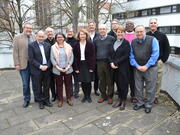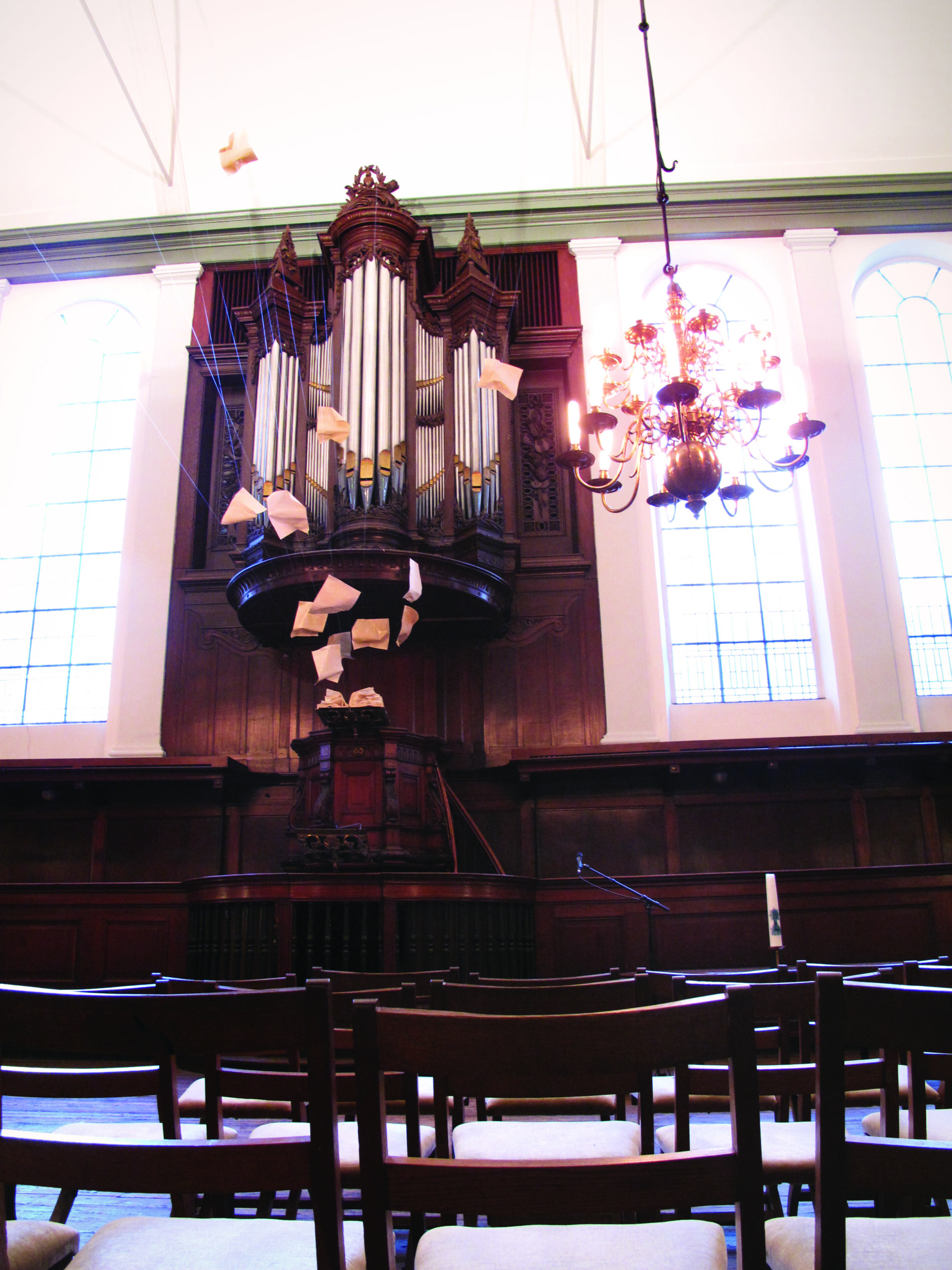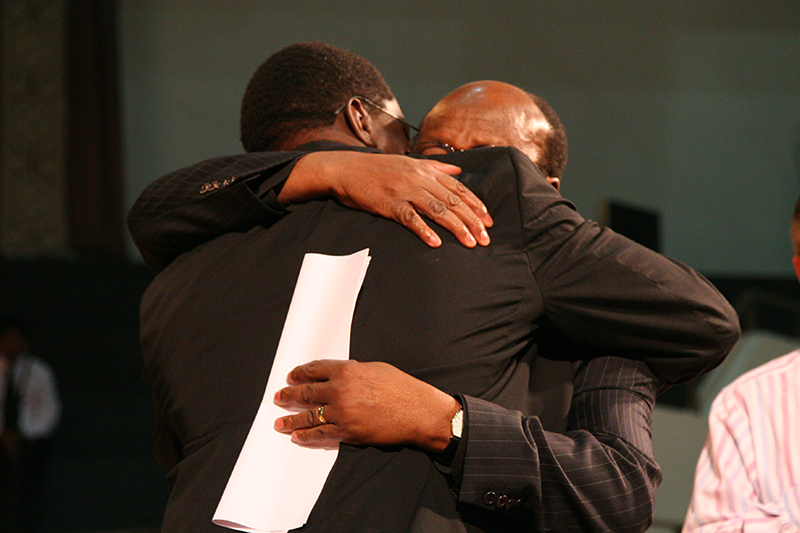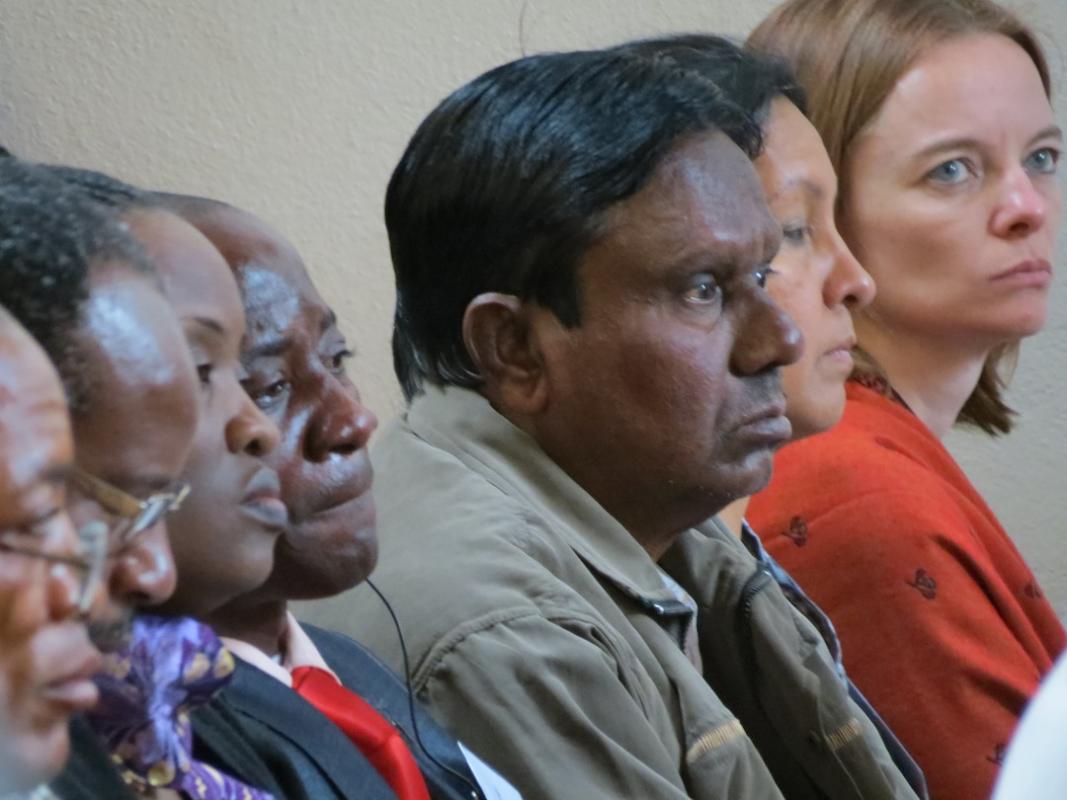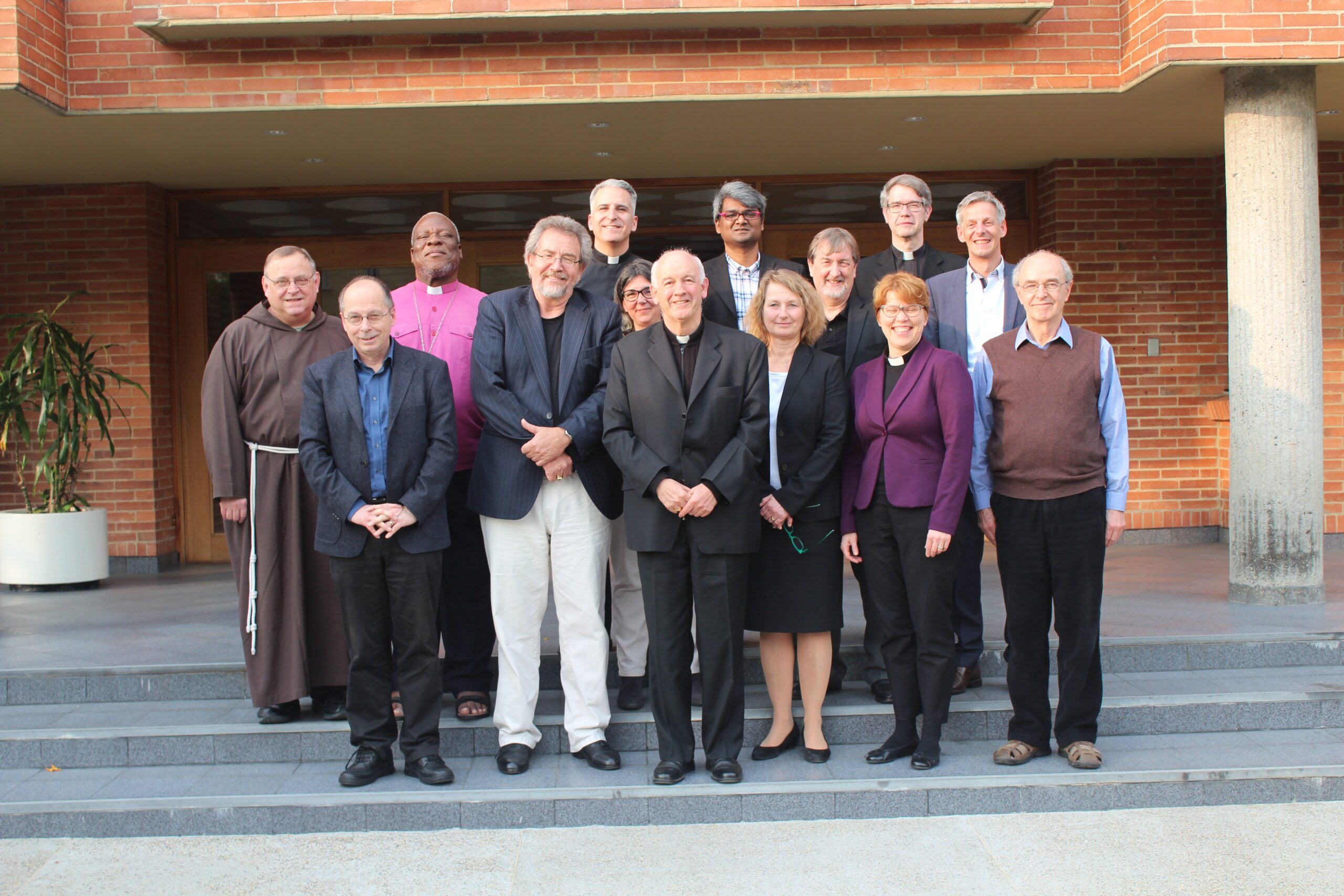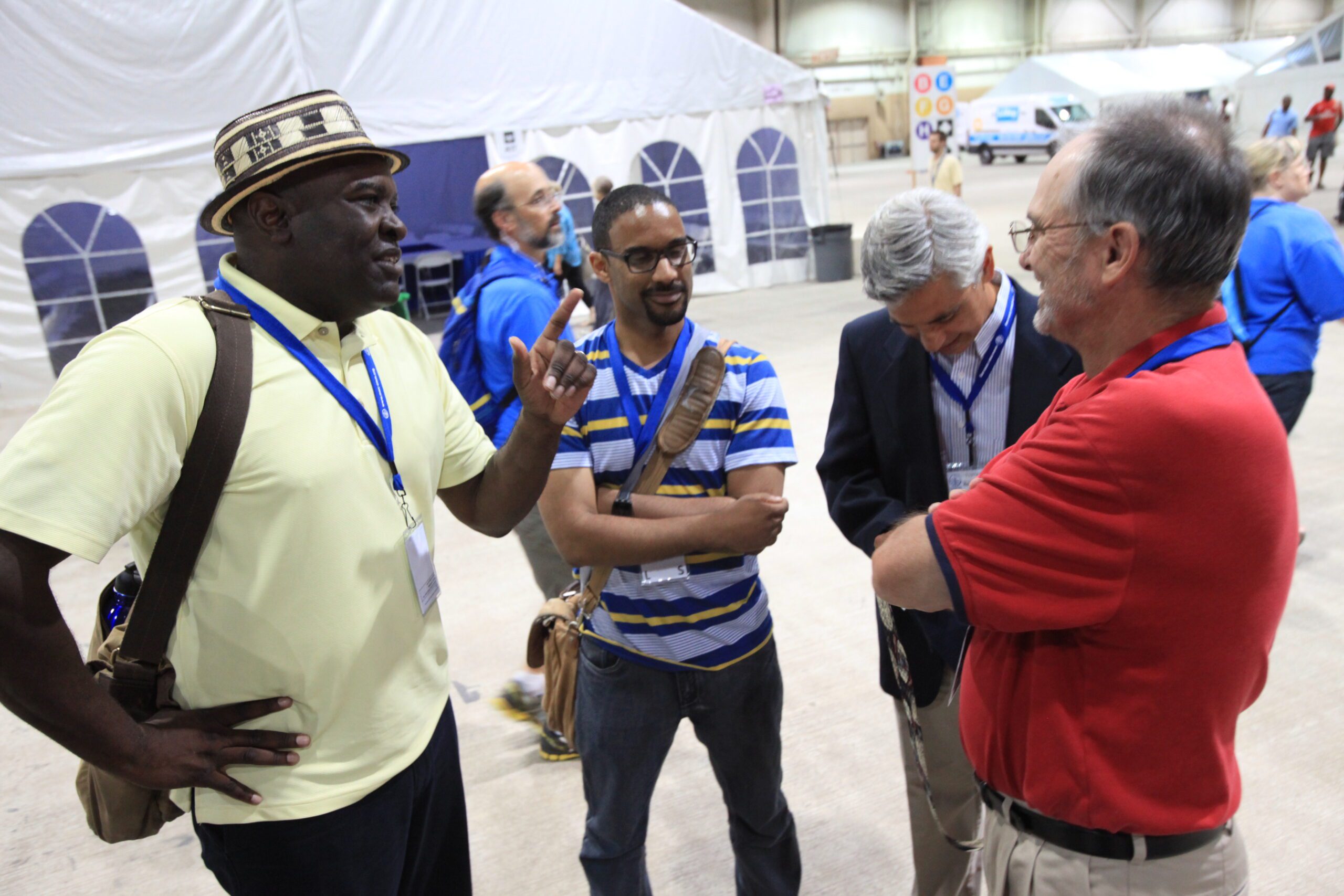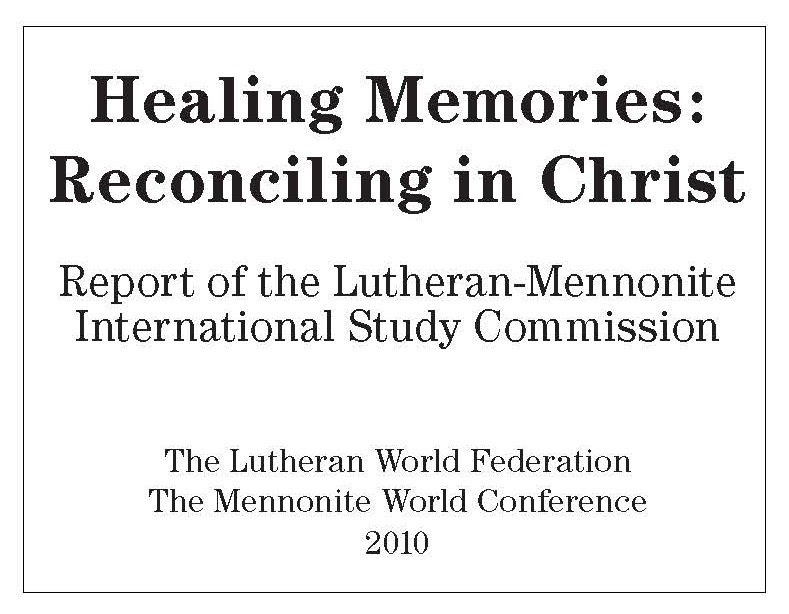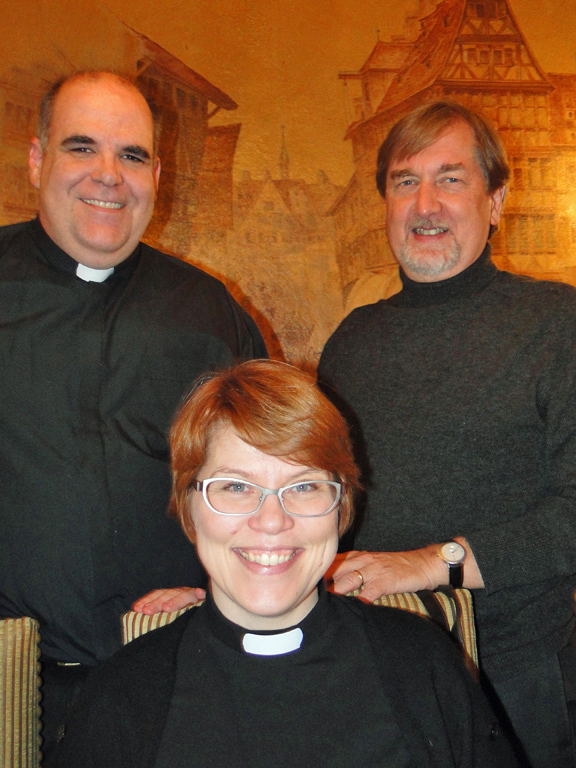-
Dialogues on baptism close with learning and prayer
The commission discussed and developed its final report, entitled “Baptism and Incorporation into the Body of Christ, the Church,” drafted by professors Theo Dieter (Lutheran, France), William Henn (Catholic, US/Vatican) and John Rempel (Mennonite, Canada). The trilateral commission agreed on a further process to finalize the report, which summarizes the rich discussions that have taken…
-
Transformed by the Word
Like the chambers of a heart, the four MWC commissions serve the global community of Anabaptist-related churches, in the areas of deacons, faith and life, peace, mission. Commissions prepare materials for consideration by the General Council, give guidance and propose resources to member churches, and facilitate MWC-related networks or fellowships working together on matters of
-
Reconciling the radical reformation
Report on Bearing Fruit, the Lutheran World Federation Task Force to follow up the “Mennonite Action” at the LWF Eleventh Assembly in 2010. Bogotá, Colombia – The reconciliation process between the Lutheran World Federation and Mennonite World Conference has created fertile ground for collaboration. A report summarizing the LWF-MWC action of reconciling with Mennonites over
-
Deep in our theological DNA
Like the chambers of a heart, the four MWC commissions serve the global community of Anabaptist-related churches, in the areas of deacons, faith and life, peace, mission. Commissions prepare materials for consideration by the General Council, give guidance and propose resources to member churches, and facilitate MWC-related networks or fellowships working together on matters of
-
Deep in our theological DNA
Like the chambers of a heart, the four MWC commissions serve the global community of Anabaptist-related churches, in the areas of deacons, faith and life, peace, mission. Commissions prepare materials for consideration by the General Council, give guidance and propose resources to member churches, and facilitate MWC-related networks or fellowships working together on matters of
-
Learning to Know Each Other Better: Researchers embark on a global study of MWC member-churches
In 2012, MWC partnered with the Institute for the Study of Global Anabaptism (ISGA) at Goshen College (Goshen, Indiana, USA) to launch a multi-year, multi-part research initiative. The goal? To develop a more nuanced picture of the MWC constituency specifically, and the global Anabaptist church generally. The project has two components. The first, the Global
-
Incorporation into the body of Christ
Fourth meeting of the Catholic, Lutheran and Mennonite Trilateral Dialogue Commission on baptism Bogotá, Colombia – Representatives of the Catholic Church (Pontifical Council for Promoting Christian Unity), The Lutheran World Federation, and Mennonite World Conference met in Bogotá, Colombia, 29 February–4 March 2016, for the fourth meeting of the International Trilateral Dialogue Commission. The Commission
-
What We Believe Together 2015
Second Edition Exploring the “Shared Convictions” of Anabaptist-related churches by Alfred Neufeld Photography by Merle Good Introduction by César García Published in cooperation with Mennonite World Conference
-
Is Christian faithfulness possible without unity?
By all accounts, the 16th Mennonite World Conference Assembly 21–26 July 2015 in Harrisburg, Pennsylvania, USA, was a resounding success. Memories of worshiping with more than 8,000 people from 65 countries; unexpected encounters with old and new friends; the beautiful profusion of sights and sounds of a truly global church; workshops on challenging topics and
-
Mennonites and Lutherans Continue Journey Toward Reconciliation
Goshen, Indiana – On 20-23 July, a six-member task force appointed by Mennonite World Conference (MWC) Faith and Life Commission met at Goshen College with counterparts from the Lutheran World Federation (LWF) to review progress globally on the commitments that the two global communions made to each other in a service of reconciliation in Stuttgart,
-
Mennonites, Catholics and Lutherans hold second round of dialogue on baptism
Second meeting of the Catholic, Lutheran and Mennonite Trilateral Dialogue Commission on baptism Strasbourg, France – “I continue to be inspired by the mutuality of our work,” commented John Rempel of Toronto, Ontario, one of the Mennonite participants in the 26-31 January 2014 second meeting of the Trilateral (Catholic, Lutheran, Mennonite) Dialogue Commission on Baptism.
-
Living the Christian Life in Today’s World
A Conversation between Mennonite World Conference and the Seventh-day Adventist Church 2011-2012
